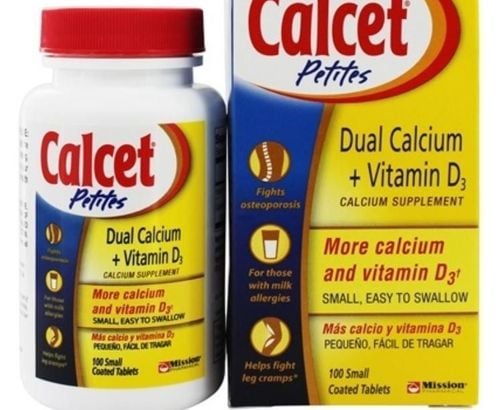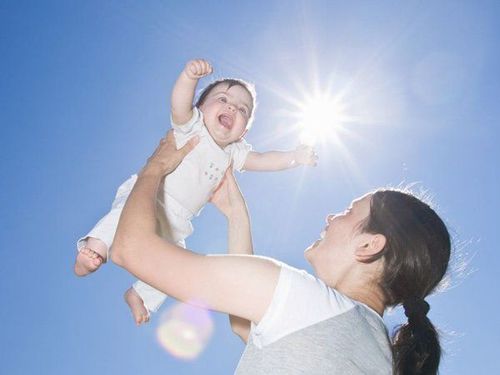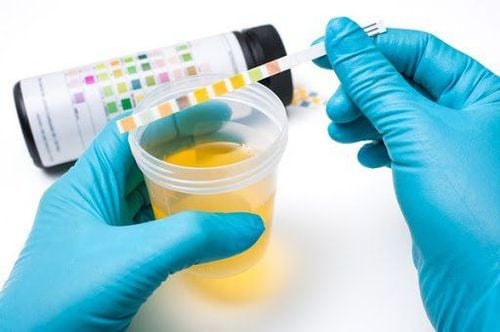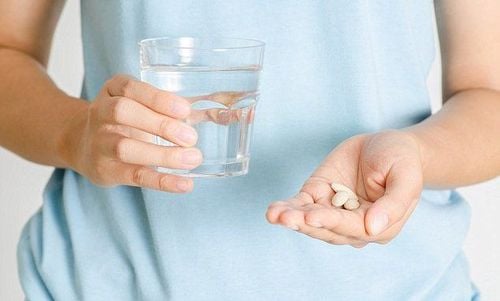This is an automatically translated article.
Vitamin D plays an extremely important role in the absorption of calcium and phosphorus from the intestines. When the body is deficient in Vitamin D, it will mobilize calcium from the bones and make the bones soft and deformed, causing rickets in children and osteoporosis in adults. Sunbathing for babies is an effective way to stimulate vitamin D3 synthesis and help the child's skeletal development.According to the advice of specialists, the best time to sunbathe for your baby is before 9 am, but if you miss this time, you can completely sunbathe your baby in the afternoon.
According to statistics, up to 80% of vitamin D is synthesized under the skin thanks to the effect of UVB rays in direct contact with the skin, the remaining 20% vitamin D children will absorb from breast milk and daily food, because Therefore, parents should sunbathe their baby properly and regularly to help the child's body synthesize vitamin D, support the absorption of calcium, and help build strong bones.
How long is enough sunbathing time is a question that many people care about. In this regard, specialists recommend that babies should be sunbathing for 20-30 minutes every morning every day. For children who are sunbathing for the first time, it should only last about 10 minutes and gradually increase the duration as they get used to it.
Some guidelines for sunbathing your baby properly include:
Baby 1 to 2 weeks after birth can start sunbathing every day. At first, children should only be exposed to the sun for about 10 minutes, then gradually increase. However, neither babies nor children should be in the sun for more than 20 minutes at a time. The place to sunbathe for babies needs to be quiet, clean, cool, fresh, avoid drafts and dust. Limit sunlight directly in front of your baby's eyes or head because of the risk of affecting the brain. The sun's rays must shine directly on the baby's skin to be effective, so take off your baby's clothes when bathing and do not expose the sun through the window. Let the sun shine on the legs, then slowly let the baby receive the sunlight from behind. When your baby is sick or when it is cold, you should stop sunbathing your baby, if you want to continue, you need to cover your baby, revealing only the calves, thighs and arms. Dry the sweat and give your baby some extra water after sunbathing. Sunbathing for babies is a great way to stimulate the production of vitamin D for children and support the absorption of calcium, helping to build strong bones. However, it is necessary to understand clearly about sunbathing for babies properly to ensure the safety of the baby's immature health.













